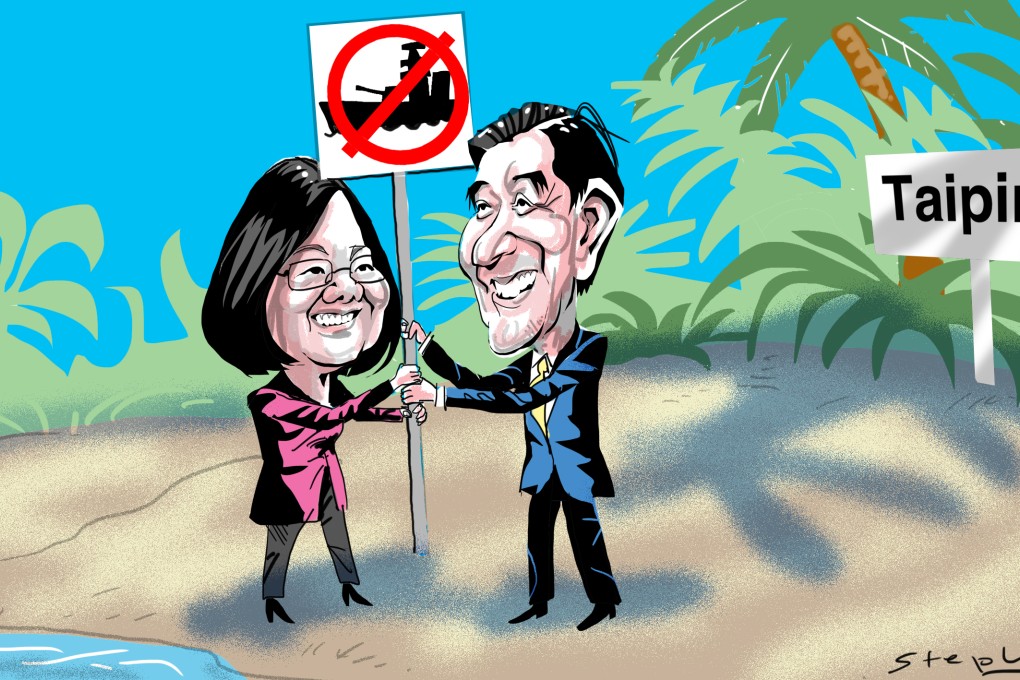Can Taiwan show Beijing and the world how disputed islands should be used for peace?
Jerome Cohen says Taipei should turn the South China Sea island of Taiping into a centre for the peaceful resolution of East Asian disputes


READ MORE: Taiwanese president’s trip to South China Sea island unhelpful, US says
Yet the US government seemed to believe that Ma was making a monkey of its belated efforts to stop Beijing from converting five or more mere reefs or sandbars into artificial island military bases. The US expressed “disappointment” over Ma’s plan and denounced it as an action that “is extremely unhelpful and [that] does not contribute to the peaceful resolution of disputes.” This was an extraordinary public rap on Ma’s knuckles after eight years of American support for his contributions to the improvement of Taiwan-mainland relations.
What was behind this surprising turn of events will eventually be revealed. Had Ma requested US advance approval? Taiwanese and American diplomats reportedly had long been discussing the wisdom of such a trip without reaching agreement, and Ma is due to step down as president on May 20. Had Ma failed to even give the US reasonable warning of his unilateral decision? Had Washington provoked Ma’s action by not taking Taipei into its confidence regarding US Secretary of State John Kerry’s contemporaneous Beijing discussions about the South China Sea?
READ MORE: China may send anti-ship missiles to South China Sea if tensions flare with US: analysts

Taiwan has been excluded from this critical arbitration because of its diplomatic isolation and inability to take part in the UN Convention on the Law of the Sea. Nevertheless, because Taiwan continues to insist that its government is the true representative of China and maintains maritime claims similar to Beijing’s, the arbitration tribunal’s judgment will have a significant impact on Tsai’s new government, as well as on Beijing, and present Taiwan with an even more difficult dilemma than Beijing will confront.
As expected, Tsai has wisely been trying to wait until she has to face the music. She declined the opportunity to accompany Ma to Taiping island, even though the previous DPP president, Chen Shui-bian, made an unprecedented similar trip to the island years ago.